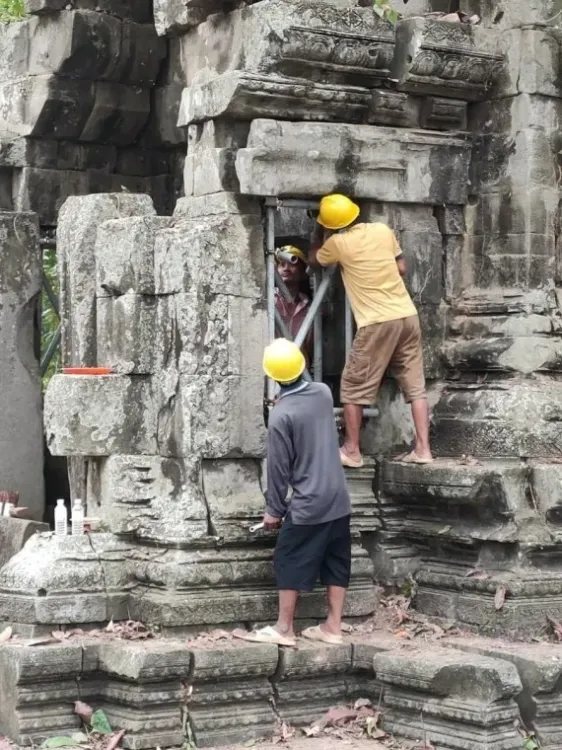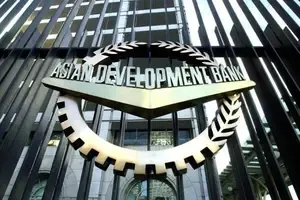Cambodia and Indonesia Join Forces for Sustainable Tourism at Two UNESCO Sites

Synopsis
Key Takeaways
- MoU signed between Cambodia and Indonesia.
- Focus on Angkor Archaeological Park and Borobudur Temple.
- Goals include sustainable tourism management.
- Collaboration based on mutual benefits.
- 1.02 million tourists visited Angkor in 2024.
Phnom Penh, Jan 15 (NationPress) - On Wednesday, Cambodia and Indonesia formalized their collaboration through a Memorandum of Understanding (MoU) aimed at promoting sustainable and environmentally responsible tourism management at two UNESCO-designated world heritage sites.
The agreement focuses on Cambodia's Angkor Archaeological Park and Indonesia's Borobudur Temple, as stated in a news release from the APSARA National Authority (ANA), the Cambodian agency tasked with the management, protection, and preservation of the Angkor complex.
The MoU was signed in Siem Reap province, northwest Cambodia, by ANA's Director General Hang Peou and Hetty Herawati, the Director of marketing and business development at PT Taman Wisata Candi (TWC) Borobudur, Prambanan, and Ratu Boko, also known as In Journey Destination Management (IDM).
The news release highlighted that the MoU establishes a fundamental principle and framework for effective collaboration between the parties involved.
A key goal is to improve smart, sustainable, and environmentally sound tourism management practices at both heritage sites.
This initiative is based on the principles of equitable and mutual benefits, aligning with the responsibilities, functions, and authorities of both parties, as stated in the news release.
The aim is to ensure the smooth execution of responsibilities under the World Heritage Programme, committed to being carried out in good faith, as reported by Xinhua news agency.
Situated in Siem Reap province, the 401-square-kilometer Angkor complex is currently the most visited tourist destination in Cambodia, featuring 91 ancient temples constructed from the 9th to the 13th centuries.
In 2024, the Angkor complex welcomed a total of 1.02 million international tourists, generating a gross revenue of 47.8 million US dollars from ticket sales, as reported by the state-owned Angkor Enterprise.









